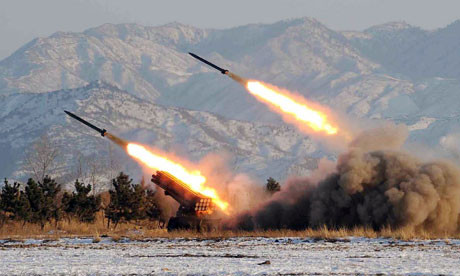Burma signs a protocol on its nuclear programme control
Published: Oct 1, 2013 Reading time: 3 minutes Share: Share an articleOn 17th September, Burmese government representatives together with a UN agency signed a protocol that might provide access to information and assert control of possible Burmese nuclear programme in the future. Even though Burma is a long-standing member of the IAEA (the International Atomic Energy Agency) and a signatory of the Treaty on the Non-Proliferation of Nuclear Weapons, it was only now when it signed the so called Additional Protocol. The document imposes obligation on the government to report any military or peace activities connected with nuclear energy, and at the same time it grants the IAEA power to implement control over nuclear facilities.

These days, Burma denies attempting to acquire any nuclear arsenal. However, in the past the country’s rhetoric and actions were somewhat different. Allegedly, in 2005 the country gained a device for uranium enrichment, originally having been owned by Germany, Switzerland and Singapore. According to a certain part of experts, Burma did indeed enrich uranium as it has considerable natural resources, including uranium, which was being mined for exactly that purpose. In 2010, speculation was rife as to whether it was North Korea, which had abrogated the Non-Proliferation Treaty (NPT) and is in effect openly developing its nuclear programme, which provided Burma with nuclear technology and devices. Moreover, at least since 2011 the Burmese government has been striving to acquire a research reactor from Russia and it kept refusing to be subject to the IAEA inspections. As a matter of fact, Burma has never admitted the pursuit of its ‘nuclear endeavour’. With respect to experts’ assessment, who point out that professional skills of Burmese nuclear technicians are fairly poor, the proposition that the country would be able to possess nuclear arsenal does not prove feasible in a short-term perspective.
Independent online journal on Burma DVB, which drew attention to the Burmese nuclear efforts in the past, warns that signing the IAEA Additional Protocol does not necessarily mean full and close international surveillance. The commitment to report on undertaking any nuclear activity cannot be checked out thoroughly, and what is more the government’s obligation to undergo random checks concerns only the reported nuclear facilities. However, Burma has not notified of any such capacities. DVB has informed that there are at least two well-documented facilities for production of chemical weapons that might serve for producing the nuclear ones as well. That is the reason why DVB urges the Burmese government to allow the facilities to be inspected. Taking this step would not only confirm the officials’ willingness to comply with the conditions of the Additional Protocol de facto, but it would also dispel last lingering doubts about its nuclear programme.
Above all, signing the Protocol might please the US administration cherishing hopes for Burma to get alienated from North Korea, as these two countries used to cooperate on both commerce and the military. Yet, the most serious concerns are aroused about Burmese purchase of missiles and other conventional military equipment rather than potential transfer of nuclear technology. Respective military cooperation between Burma and the USA, which was also debated by the American administration at the end of September, is still a question mark over the future, as apart from the relations with North Korea, Burma forges strong ties with China. Therefore, it may take up to several years until the signed protocol will be ratified by the Burmese government and will come into force.
Sources: www.irrawady.org, www.dvb.no, www.cia.gov
See also other Burmese news.
